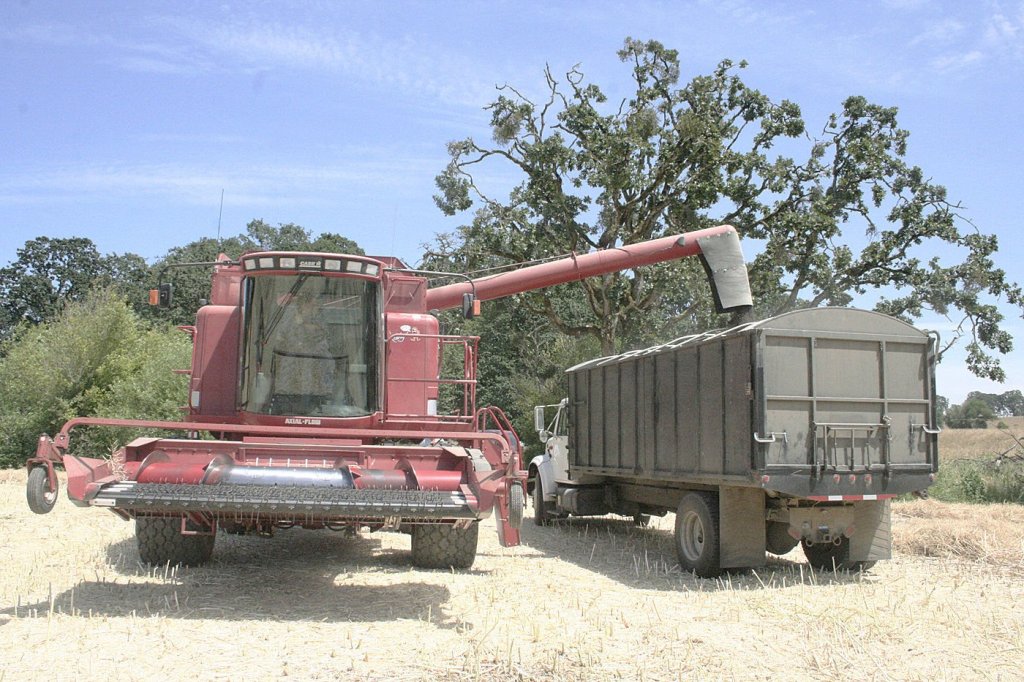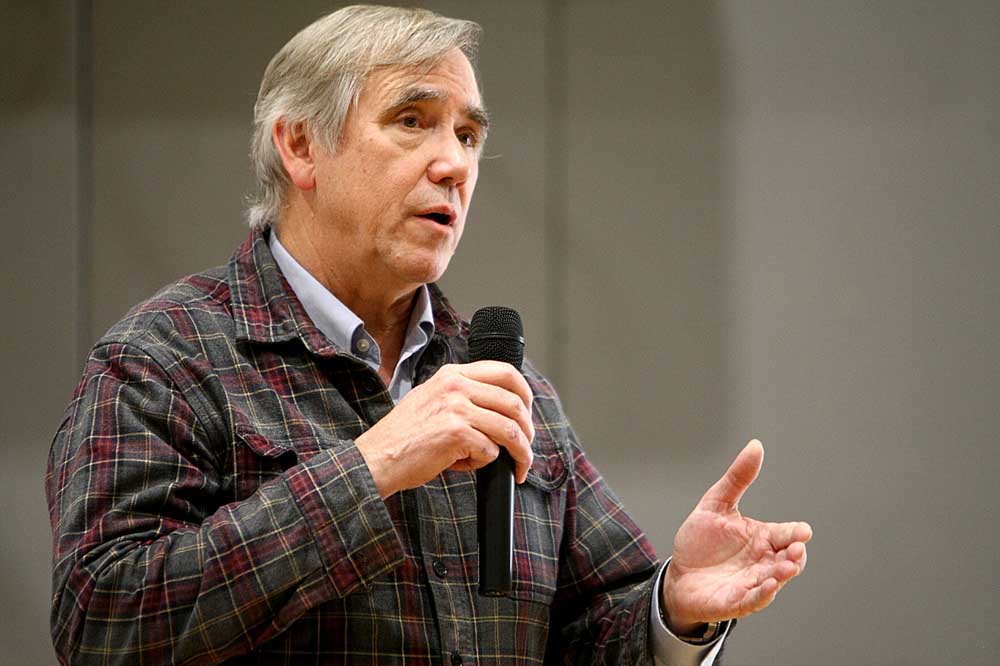Oregon legislators scrap petroleum diesel fuel phase-out
Published 8:45 am Tuesday, February 22, 2022

- Canola seed is emptied from a combine into a truck in Oregon's Willamette Valley. Critics worried that a phase-out of petroleum diesel for motor vehicles in Oregon would affect the availability of the fuel for farm machinery. Lawmakers have scrapped the proposal in favor of a task force to study the issue.
SALEM — Oregon lawmakers have scrapped a proposal to phase out petroleum diesel and have instead moved ahead with a bill to study alternative fuel supply and pricing.
The original version of HB 4141 would have prohibited the sale of petroleum diesel for motor vehicles, beginning with the Portland metropolitan area in 2025 and 2026 and then Western Oregon in 2027 and 2028.
Trending
The fuel would be banned for motor vehicles statewide in 2029, though enforcement could be suspended due to price hikes and supply shortages.
On Feb. 22, the Joint Transportation Committee instead unanimously passed an amended bill that would create a task force to analyze the difference in availability and price of petroleum diesel compared to renewable diesel, as well as potential incentives to boost the alternative fuel.
“I guess it’s time to sit around the campfire and sing, ‘Kumbaya,’” said Rep. Lynn Findley, R-Vale, who requested the amendment.
The amended bill will help determine the truth about renewable diesel availability and potentially allow lawmakers to take action in the future, said Rep. Paul Evans, D-Monmouth, chief sponsor of the original bill.
“There’s no promise of that,” Evans said.
The original legislation’s goal was to promote the use of renewable diesel, which is manufactured from non-petroleum sources, but critics claimed it would severely disrupt the supply chain.
Trending
“By all accounts, production and storage capacity is not even close to making exclusive renewable diesel a viable option for motor vehicles,” said Amanda Astor, forest policy manager for the Association of Oregon Loggers.
Without adequate diesel supplies, Oregon’s 22,000 logging operators wouldn’t be able to power their equipment or transport timber to market, she said during a recent legislative hearing.
Similarly, the state’s farmers would be hindered in delivering goods or using on-road farm vehicles, said Lauren Smith, government affairs director for the Oregon Farm Bureau.
Though farm machinery would still be able to use petroleum diesel under the bill, in reality it would still restrict the availability of such off-road “dyed diesel,” according to the organization.
“On- and off-road fuel are not delivered separately. A ban like this would definitely affect supply and the ability to get off-road diesel into Oregon,” Smith said.
The provision in HB 4141 that would allow enforcement to be suspended would not automatically replenish diesel supply chains, said Sharla Moffett, energy, environment, natural resources and infrastructure director at the Oregon Business & Industry organization.
Regulators cannot simply “flip a switch” and make petroleum diesel widely available after it’s been prohibited, she said. “Without careful examination, we could be solving one problem and causing many others.”
Proponents of HB 4141 argued that regulations improving the fuel efficiency of trucks with reduce carbon emissions eventually, but that doesn’t affect the pollution caused by older vehicles.
“We need renewable diesel to bridge us until we have a larger zero emission fleet,” said Sorin Garber, a transportation consultant who opposed the amendment to study availability and prices.
“We can only study alternative fuels while we effortlessly use renewable diesel,” he said.
Angus Duncan, chair emeritus of the Oregon Global Warming Commission, said that a shift to electric vehicles and those that use hydrogen fuel is a longer-term solution to climate change.
“We need an interim solution that can show emissions reductions now,” he said. “Renewable diesel appears to be that solution. It’s a drop-in fuel. No adaptions needed, no warrantees voided.”
Aside from climate change considerations, proponents argued that petroleum diesel poses health dangers because it contains heavy metals and other toxic substances.
Breathing in diesel pollution laced with those toxic substances causes inflammation that leads to heart and lung disease, as well as certain cancers, said Sharon Meieran, a doctor and Multnomah County commissioner.
“Prevention is better than treatment,” she said. “Cleaning up diesel pollution prevents some terrible consequences.”





